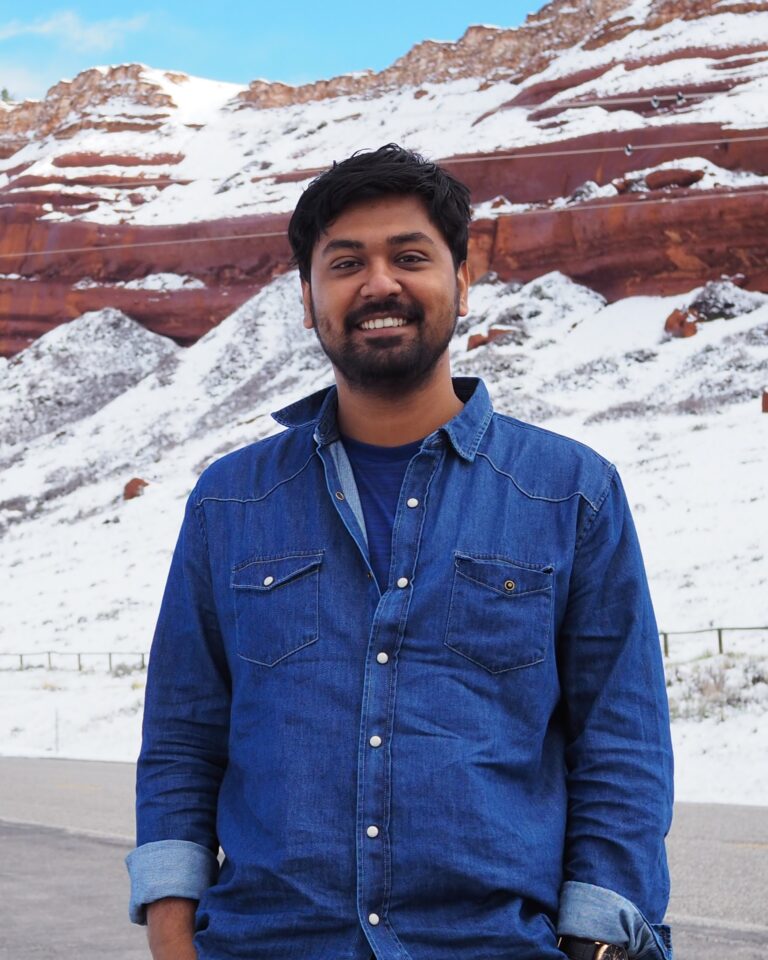 Khaled Mosharraf Mukut - Ph.D. Mechanical Engineering
Khaled Mosharraf Mukut - Ph.D. Mechanical Engineering
Khaled Mosharraf Mukut, a current doctoral student in the Department of Mechanical Engineering was recently awarded the Richard W. Jobling Distinguished Research Assistantship. The award is made possible through a generous donation to Marquette University to encourage and support research activity by doctoral students in the fields of science and engineering.
Mukut’s research endeavors are dedicated to gaining comprehensive insights into the intricate processes governing the formation, dissemination, and mitigation of soot, a significant air pollutant in our environment. He is actively engaged in crafting multiple journal manuscripts to disseminate his team’s discoveries. Mukut presented elements of his research at the American Association for Aerosol Research (AAAR) conference in Portland, Oregon in October 2023. The AAAR conference fosters invaluable discussions and collaborations that shape the trajectory of air quality management.
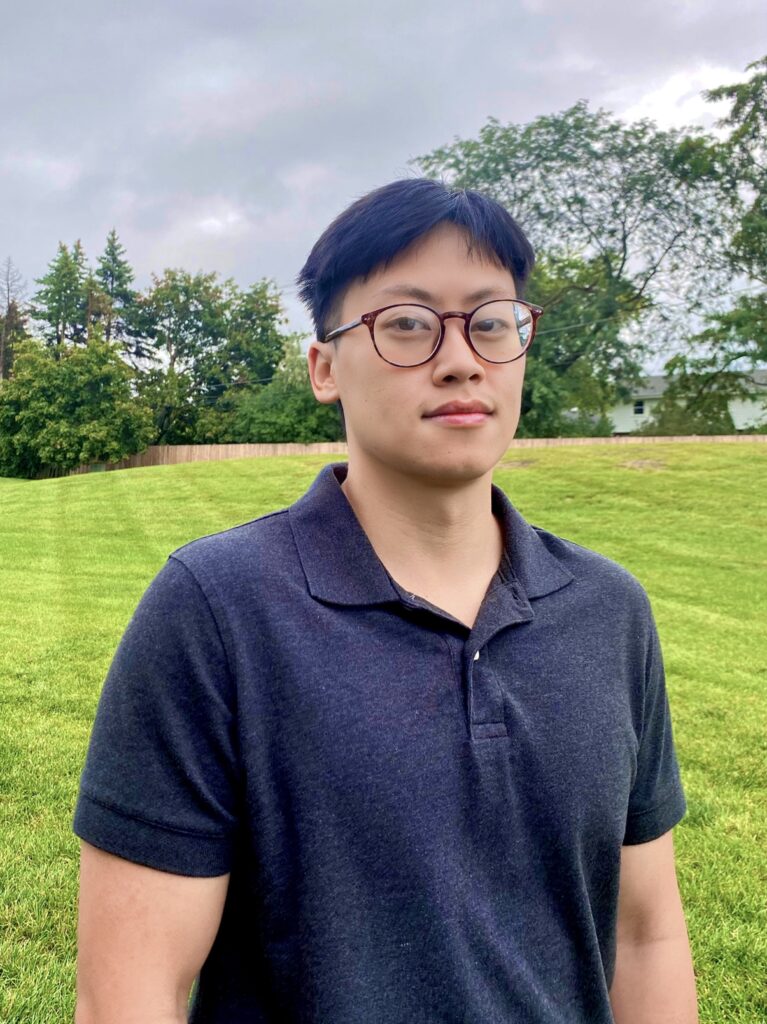 Paris Her - Ph.D. Electrical and Computer Engineering
Paris Her - Ph.D. Electrical and Computer Engineering
Paris Her, a doctoral student in the Department of Electrical and Computer Engineering, was recently awarded the Greater Milwaukee Foundation’s Frank Rogers Bacon Research Assistantship.
Her’s research focuses on using artificial intelligence/computer vision strategies to solve real-world problems. Her noted, “With massive increases in security cameras in malls, schools, and stadiums, security footage monitoring can be an exhausting task. To help alleviate this, our team is currently investigating automated abnormal behavior (violence, theft, vandalism etc.) recognition in surveillance videos. We hope to create a positive impact to the safety of others in the future.”
Her credits his amazing colleagues and advisors, Dr. Yaz and Dr. Schneider, who have helped him with his academic career and the opportunity to receive this fellowship.
Hossein is a research assistant in the electrical and computer engineering department at Marquette University. He has done res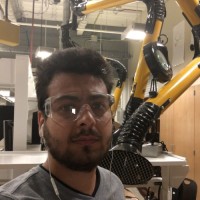 earch in the area of Electric machine Design, and fault diagnosis. During his recent research project, Koti successfully reduced the numerical transient response of Induction machines under static eccentricity, dynamic eccentricity, and broken rotor bar fault. According to Hossein, Marquette University has provided him with an opportunity to benefit from knowledgeable faculty members as well as providing him the necessary tools to do his research.
earch in the area of Electric machine Design, and fault diagnosis. During his recent research project, Koti successfully reduced the numerical transient response of Induction machines under static eccentricity, dynamic eccentricity, and broken rotor bar fault. According to Hossein, Marquette University has provided him with an opportunity to benefit from knowledgeable faculty members as well as providing him the necessary tools to do his research.
Isabelle is 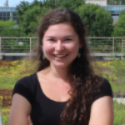 a thesis-track Master's student who presented her thesis work at the American Geophysical Union (AGU) 2019 Fall Meeting, an international meeting being held in San Francisco, CA. While attending, she presented her research titled "Seasonal soil nutrient dynamics in urban green spaces." Support from her department and the Marquette Graduate School allowed her to attend the conference and present her work. She is thrilled to learn from, and to share her research with experts in the hydrology field at the AGU meeting December 2019. She is especially grateful for the guidance of her advisor and the financial support of both her department and the graduate school.
a thesis-track Master's student who presented her thesis work at the American Geophysical Union (AGU) 2019 Fall Meeting, an international meeting being held in San Francisco, CA. While attending, she presented her research titled "Seasonal soil nutrient dynamics in urban green spaces." Support from her department and the Marquette Graduate School allowed her to attend the conference and present her work. She is thrilled to learn from, and to share her research with experts in the hydrology field at the AGU meeting December 2019. She is especially grateful for the guidance of her advisor and the financial support of both her department and the graduate school.
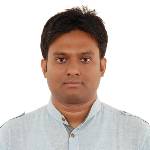 Rezoan Ahmed Shuvro, a Ph.D. student at the EECE department of Marquette University, is working on modeling cascading failures in interdependent systems, funded by the National Science Foundation. He is mentored by Professor and EECE chair Dr. Majeed M. Hayat. Cascading failure is a phenomenon where a small disturbance in the system can create a domino effect and eventually led to a system blackout. As systems (such as smart grids) are heavily interconnected with a communication layer, initial disturbances can propagate through interconnections to create a larger effect in the overall system and modeling the dynamics of interdependent systems can be extremely challenging.
Rezoan Ahmed Shuvro, a Ph.D. student at the EECE department of Marquette University, is working on modeling cascading failures in interdependent systems, funded by the National Science Foundation. He is mentored by Professor and EECE chair Dr. Majeed M. Hayat. Cascading failure is a phenomenon where a small disturbance in the system can create a domino effect and eventually led to a system blackout. As systems (such as smart grids) are heavily interconnected with a communication layer, initial disturbances can propagate through interconnections to create a larger effect in the overall system and modeling the dynamics of interdependent systems can be extremely challenging.
This year, the team has made solid progress towards enhancing the capabilities of their analytical model. In particular, the team was able to model the dynamics of the power grid, associated communication network and human operators error using a Markov chain model. As a part of the process, Rezoan Shuvro published four research papers. The research group presented two papers at the 2019 IEEE PES Innovative Smart Grid Technologies Europe (ISGT-Europe) is sponsored by IEEE Power & Energy Society (PES) and University POLITEHNICA of Bucharest, Romania.
The works predict the average transmission-capacity loss and load loss during a cascading failure as a function of time and their steady-state values and establish a detailed mapping between power grid states and the associated human operator error. In another paper, which was presented at the North American Power Symposium (NAPS’ 2019), the group predicted cascading failures in power grids using machine learning algorithms.
Lastly, the publication on balancing smart grid's performance enhancement and resilience to the cyber threat was presented at the resilience week 2019 conference, where the team showed that there exists a point of diminishing returns beyond which the harm of exposure to cyber threat outweighs the benefits of information to prevent cascading failures. To attend two of those conferences (NAPS and resilience week), Rezoan Shuvro was supported with travel grants from the graduate school. Rezoan Shuvro strongly feels that academic and financial support from his mentor as well as from graduate school has motivated him tremendously towards his pursuit of knowledge during his Ph.D. tenure at Marquette University.
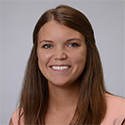 The Marquette University accelerated graduate degree program opened many avenues for Emile in her academic and personal life. It afforded her the skills necessary to secure a position with Robert Bosch in their Junior Managers Program, which is reserved for candidates with Master’s and Doctorate degrees. During her two years in the program, Teitz had the opportunity to work on autonomous, electric, hybrid and fuel cell vehicles all while participating in leadership courses. Following graduation from the Junior Managers program, she took a role with Bosch Engineering GmbH in Munich, Germany. She is designing propulsion systems for vehicles that utilize either batteries or alternative fuel sources such as hydrogen as their power source. Attaining an international engineering position was a personal goal that would not have been possible without her Master’s of Science in mechanical engineering from Marquette University. Participating in the five year BS/MS program allowed her to achieve her goals much quicker than if she would have taken the traditional engineering school route. Receiving a Jesuit education from Marquette University was a rewarding experience that provided her with a strong foundation in her field of study, strength as a leader, and strong ethical values, all which are important for a successful career in engineering and corporate management.
The Marquette University accelerated graduate degree program opened many avenues for Emile in her academic and personal life. It afforded her the skills necessary to secure a position with Robert Bosch in their Junior Managers Program, which is reserved for candidates with Master’s and Doctorate degrees. During her two years in the program, Teitz had the opportunity to work on autonomous, electric, hybrid and fuel cell vehicles all while participating in leadership courses. Following graduation from the Junior Managers program, she took a role with Bosch Engineering GmbH in Munich, Germany. She is designing propulsion systems for vehicles that utilize either batteries or alternative fuel sources such as hydrogen as their power source. Attaining an international engineering position was a personal goal that would not have been possible without her Master’s of Science in mechanical engineering from Marquette University. Participating in the five year BS/MS program allowed her to achieve her goals much quicker than if she would have taken the traditional engineering school route. Receiving a Jesuit education from Marquette University was a rewarding experience that provided her with a strong foundation in her field of study, strength as a leader, and strong ethical values, all which are important for a successful career in engineering and corporate management.
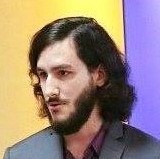 Jesse attended the Biomedical Engineering Society Annual Meeting in Atlanta, Georgia in October, 2018. Being his first official podium talk, he was not only nervous about presenting in front of experts in the field, but had concerns about how he was going to afford the trip. With the help of the graduate school he was able to at least alleviate funds as a concern. By going to the BMES Annual meeting, he had a wonderful experience sharing his work and networking with many people in his field. This is the 2nd time the graduate school has supported Jesse and he has expressed gratitude for the helpful resource for students across the university.
Jesse attended the Biomedical Engineering Society Annual Meeting in Atlanta, Georgia in October, 2018. Being his first official podium talk, he was not only nervous about presenting in front of experts in the field, but had concerns about how he was going to afford the trip. With the help of the graduate school he was able to at least alleviate funds as a concern. By going to the BMES Annual meeting, he had a wonderful experience sharing his work and networking with many people in his field. This is the 2nd time the graduate school has supported Jesse and he has expressed gratitude for the helpful resource for students across the university.
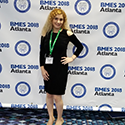 The Biomedical Engineering Society (BMES) serves as the lead society and professional home for biomedical engineering. Faraneh finished her second year in PhD program in Biomedical Engineering and was awarded the Graduate Student Research Travel Award to attend the Biomedical Engineering Society (BMES) Conference in October 2018. She delivered a talk about her research entitled “Feasibility of Visible Diffuse Reflectance Spectroscopy for Liver Oximetry in an in vivo Swine Model”.
The Biomedical Engineering Society (BMES) serves as the lead society and professional home for biomedical engineering. Faraneh finished her second year in PhD program in Biomedical Engineering and was awarded the Graduate Student Research Travel Award to attend the Biomedical Engineering Society (BMES) Conference in October 2018. She delivered a talk about her research entitled “Feasibility of Visible Diffuse Reflectance Spectroscopy for Liver Oximetry in an in vivo Swine Model”.
Faraneh would like to thank her advisor and Graduate school, as well as the Department for providing her the opportunity to attend the conference.
 Sazzad, a PhD student in the Environmental and Water Resources Engineering program at Marquette University, presented in American Geophysical Union fall meeting 2018. Marquette helped him with the academic and research resources needed to complete the work he presented there.
Sazzad, a PhD student in the Environmental and Water Resources Engineering program at Marquette University, presented in American Geophysical Union fall meeting 2018. Marquette helped him with the academic and research resources needed to complete the work he presented there.
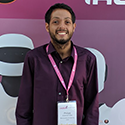
The IROS (International Conference on Intelligent Robots and Systems) Conference is one of the largest and most impacting robotics research conferences worldwide. Philipe Ambrozio Dias just finished his 2nd year in the Graduate School (PhD) and had the opportunity to participate in this event on October 1-5, 2018 in Madrid, Spain. Dias said it was a great honor and also a demonstration that the work he's been developing with his advisor Dr. Henry Medeiros headed in the right direction.
Researchers and companies from all over the world presented their most recent innovations in topics such as robotic sensors, grasping, applications to rehabilitation etc., so Philipe was able to learn a lot and get new ideas for his research. He presented his work on automated detection and segmentation of fruit flowers in images, which relies on artificial intelligence strategies. This work is a collaboration with the U.S. Department of Agriculture and is of great interest for precision agriculture applications, such as mapping orchard environments to early predict and optimize the final fruit yield.
From Philipe:
"I'm very grateful to my advisor for all his guidance and the resources that he made available at our COVISS lab. I'm also grateful to the Graduate School for the background knowledge built through some courses and for the Graduate Travel award that facilitated my participation at the conference."
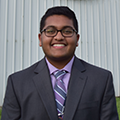 In 2018, Valay was awarded the Graduate Student Research Travel Award, funded by the Richard W. Jobling Scholarship Fund. Valay plans to use the funds to attend the Society for Neuroscience conference in San Diego, CA in November. He will present research that he has conducted during the past year, investigating the effects of long term training on reaching movements guided by external, supplemental feedback.
In 2018, Valay was awarded the Graduate Student Research Travel Award, funded by the Richard W. Jobling Scholarship Fund. Valay plans to use the funds to attend the Society for Neuroscience conference in San Diego, CA in November. He will present research that he has conducted during the past year, investigating the effects of long term training on reaching movements guided by external, supplemental feedback.
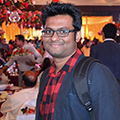 Rezoan Ahmed Shuvro has started the PhD program at EECE department of Marquette University in the Fall’18. He is continuing his research with new EECE chair, Professor Majeed M. Hayat. His work focuses on probabilistic modeling of cascading failures in interdependent systems, in particular, modeling cascading failures in the power grid including communication network and human operators in the loop. Recently, one of his works was published in the 50th North American Power Symposium (NAPS, 2018) held in Fargo, North Dakota. His paper was entitled, “Impact of Initial Stressor(s) on Cascading Failures in Power Grids.” He co-authored another paper entitled “A Data-Driven Model for Simulating the Evolution of Transmission Line Failure in Power Grids” at the same conference. Currently, he is working on embedding correlated human errors in his model and to find how different initial conditions generate different blackouts in the power grid.
Rezoan Ahmed Shuvro has started the PhD program at EECE department of Marquette University in the Fall’18. He is continuing his research with new EECE chair, Professor Majeed M. Hayat. His work focuses on probabilistic modeling of cascading failures in interdependent systems, in particular, modeling cascading failures in the power grid including communication network and human operators in the loop. Recently, one of his works was published in the 50th North American Power Symposium (NAPS, 2018) held in Fargo, North Dakota. His paper was entitled, “Impact of Initial Stressor(s) on Cascading Failures in Power Grids.” He co-authored another paper entitled “A Data-Driven Model for Simulating the Evolution of Transmission Line Failure in Power Grids” at the same conference. Currently, he is working on embedding correlated human errors in his model and to find how different initial conditions generate different blackouts in the power grid.
Saba graduated in May 2018 and starting her PhD in Fall 2018. Her oral presentation, "Anaerobic Co-digestion of Aqueous Liquid from Biosolids Pyrolysis" was given at the at the WED Residuals and Biosolids Conference (RBC) on May 15-20 in Phoenix, Arizona.
Jeff is a fifth-year candidate and attended the American Physical Society Conference in St. Louis, Missouri. At this conference, LeJeunesse presented his research paper, entitled Investigating the shock response of dry and water-saturated sand: flyer-plate experiments and mesoscale simulations. His work characterized the response of dry and water-saturated sands to high-velocity impacts on the order of 400-4000 mph. Tracking these waves and characterizing how they propagate helps to understand how materials behave under extreme thermo-mechanical loading conditions. The behavior of sand under these extreme conditions was measured within the laboratory at Marquette University and modeled with massively parallel codes that utilized U.S. Department of Defense super computers. This work was performed in conjunction with researchers from Georgia Tech, Harvard University, University of California-Davis, and Eglin Air Force Base, and supported by the Air Force Office of Scientific Research. LaJeunesse plans to work for a U.S. National Laboratory after receiving his doctoral degree.
Chris attended the American Physical Society Conference in St. Louis Missouri this past July, and presented his research there. His research paper, entitled Photon Doppler Velocimetry Measurements of Transverse Velocities, looks into how granular materials, such as sand, respond to longitudinal and shear loading at high strain rates. Measuring both longitudinal and transverse velocities in the Marquette University Shock Physics Laboratory are important for understanding how materials respond to high strain rates, ultimately allowing for material strengths to be determined. Johnson's goal for after graduation is to work in a national laboratory exploring experimental shock physics.
During his 2nd year as a PhD student, Kimbell traveled to University of Michigan in Ann Arbor to present his research at a conference for the Association of Environmental Engineering and Science Professors. His poster presentation, entitled Biosolids-Derived Biochar to Sorb Micropollutants from Wastewater, will focus on whether filters with biosolids-derived biochar could be implemented to remove additional containments at the end of the wastewater treatment process. After completing his PhD, Kimbell intends to work in industry or environmental consulting.
During her third year in the PhD program, Bonniwell presented the results of her accepted paper, entitled Performance Analysis of Resilient Dynamic Feedback H2 Controllers, at the 2015 IEEE Multi-Conference on Systems and Control, in Manly, NSW, Australia. Her presentation provides an a priori analysis procedure useful to engineering system control designers by aiding them to make insightful selections of components with adequate tolerances. Jen was also awarded the Schmitt Leadership Fellowship.
During his 5th year in the Biomedical Engineering program at Marquette, Dylan presented his research, entitled Effects of wrist tendon vibrations on cortical activity during arm stabilization, during a poster presentation at the Society for Neuroscience Conference in Chicago. This research is focused on the human brain and how it uses sensory information to control the body. More specifically, how the brain uses sensory information to control, arm stability. Past research in Dylan's lab has shown that applying vibration to the forearm flexor tendons can improve arm stability. Even though the application of tendon vibrations is known to improve the function, the mechanism behind the improvement is unclear. During his time here at Marquette, Dylan has built a passive robotic device that allows him to investigate how the brain controls arm stability and explore the mechanisms behind improved arm stability with applied tendon vibrations. Once the mechanisms of arm stability and tendon vibration are better understood, it may be possible to transfer this knowledge into the clinical setting to improve current neurorehabilitation techniques and to develop therapeutic devices. After graduating from Marquette University, Dylan plans to enter into industry and design neurological devices meant to restore or enhance function.
Sophie had the honor of presenting her research at the Biomedical Engineering Society's Conference in Tampa, Florida. Sophie's poster presentation described a nonlinear computer simulation model for blood glucose regulation consisting of 3 compartments for glucose (blood plasma, muscle tissue/mitochondria, non-muscle tissue), insulin and glucagon control action, and new approaches for addressing the diverse nature of meal and exercise inputs. Results illustrate how differences with meal type (slow vs. fast glycemic index [GI]) and exercise/activity based glucose-glycogen consumption affect predictions of blood plasma glucose dynamics and hormonal control action. Current challenges are addressed with model personalization, providing input flexibility for body mass, muscle ratio, stress, and types of diabetes (T1D, T2D) informing drug delivery design. The model was created in Matlab (and Simulink) with future implications and algorithm development to help inform diabetics on how to best regulate blood glucose.
Sophie is currently completing her master's thesis at Marquette and hopes to work directly with diabetic medical devices and supplies in a clinical applications role after graduation.
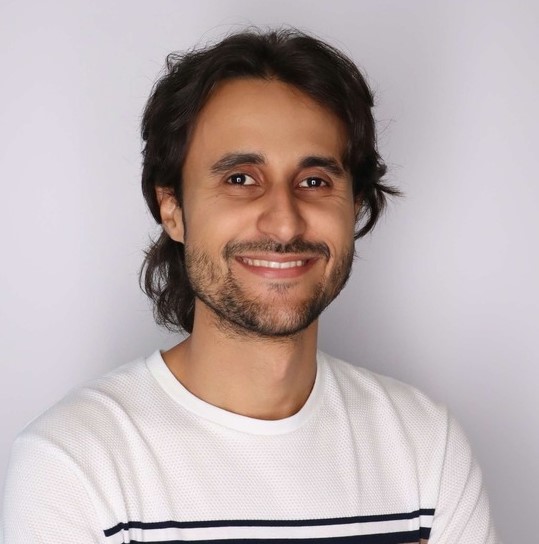 Antônio Martins - Ph.D. Civil, Construction and Environmental Engineering
Antônio Martins - Ph.D. Civil, Construction and Environmental Engineering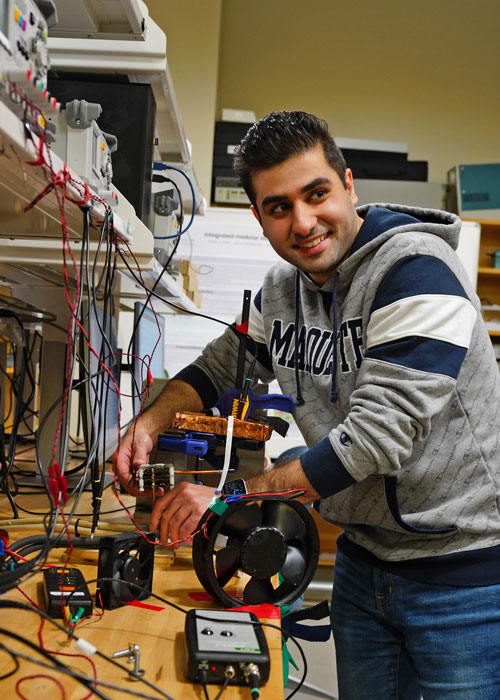 Armin Ebrahimian - Ph.D. Mechanical Engineering
Armin Ebrahimian - Ph.D. Mechanical Engineering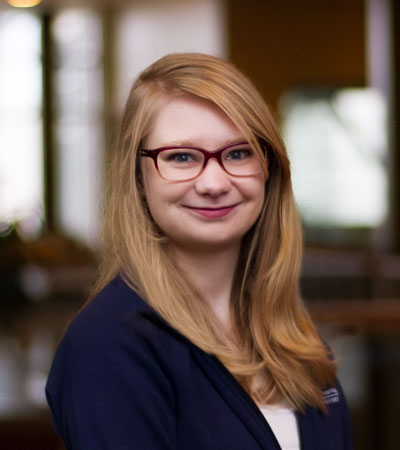 Allison Scarbrough - Ph.D. Biomedical Engineering
Allison Scarbrough - Ph.D. Biomedical Engineering Khaled Mosharraf Mukut - Ph.D. Mechanical Engineering
Khaled Mosharraf Mukut - Ph.D. Mechanical Engineering Paris Her - Ph.D. Electrical and Computer Engineering
Paris Her - Ph.D. Electrical and Computer Engineering earch in the area of Electric machine Design, and fault diagnosis. During his recent research project, Koti successfully reduced the numerical transient response of Induction machines under static eccentricity, dynamic eccentricity, and broken rotor bar fault. According to Hossein, Marquette University has provided him with an opportunity to benefit from knowledgeable faculty members as well as providing him the necessary tools to do his research.
earch in the area of Electric machine Design, and fault diagnosis. During his recent research project, Koti successfully reduced the numerical transient response of Induction machines under static eccentricity, dynamic eccentricity, and broken rotor bar fault. According to Hossein, Marquette University has provided him with an opportunity to benefit from knowledgeable faculty members as well as providing him the necessary tools to do his research.
 Rezoan
Rezoan The Marquette University accelerated graduate degree program opened many avenues for Emile in her academic and personal life. It afforded her the skills necessary to secure a position with Robert Bosch in their Junior Managers Program, which is reserved for candidates with Master’s and Doctorate degrees. During her two years in the program, Teitz had the opportunity to work on autonomous, electric, hybrid and fuel cell vehicles all while participating in leadership courses. Following graduation from the Junior Managers program, she took a role with Bosch Engineering GmbH in Munich, Germany. She is designing propulsion systems for vehicles that utilize either batteries or alternative fuel sources such as hydrogen as their power source. Attaining an international engineering position was a personal goal that would not have been possible without her
The Marquette University accelerated graduate degree program opened many avenues for Emile in her academic and personal life. It afforded her the skills necessary to secure a position with Robert Bosch in their Junior Managers Program, which is reserved for candidates with Master’s and Doctorate degrees. During her two years in the program, Teitz had the opportunity to work on autonomous, electric, hybrid and fuel cell vehicles all while participating in leadership courses. Following graduation from the Junior Managers program, she took a role with Bosch Engineering GmbH in Munich, Germany. She is designing propulsion systems for vehicles that utilize either batteries or alternative fuel sources such as hydrogen as their power source. Attaining an international engineering position was a personal goal that would not have been possible without her  Jesse attended the Biomedical Engineering Society Annual Meeting in Atlanta, Georgia in October, 2018. Being his first official podium talk, he was not only nervous about presenting in front of experts in the field, but had concerns about how he was going to afford the trip. With the help of the graduate school he was able to at least alleviate funds as a concern. By going to the BMES Annual meeting, he had a wonderful experience sharing his work and networking with many people in his field. This is the 2nd time the graduate school has supported Jesse and he has expressed gratitude for the helpful resource for students across the university.
Jesse attended the Biomedical Engineering Society Annual Meeting in Atlanta, Georgia in October, 2018. Being his first official podium talk, he was not only nervous about presenting in front of experts in the field, but had concerns about how he was going to afford the trip. With the help of the graduate school he was able to at least alleviate funds as a concern. By going to the BMES Annual meeting, he had a wonderful experience sharing his work and networking with many people in his field. This is the 2nd time the graduate school has supported Jesse and he has expressed gratitude for the helpful resource for students across the university. The Biomedical Engineering Society (BMES) serves as the lead society and professional home for biomedical engineering. Faraneh finished her second year in PhD program in Biomedical Engineering and was awarded the Graduate Student Research Travel Award to attend the Biomedical Engineering Society (BMES) Conference in October 2018. She delivered a talk about her research entitled “Feasibility of Visible Diffuse Reflectance Spectroscopy for Liver Oximetry in an in vivo Swine Model”.
The Biomedical Engineering Society (BMES) serves as the lead society and professional home for biomedical engineering. Faraneh finished her second year in PhD program in Biomedical Engineering and was awarded the Graduate Student Research Travel Award to attend the Biomedical Engineering Society (BMES) Conference in October 2018. She delivered a talk about her research entitled “Feasibility of Visible Diffuse Reflectance Spectroscopy for Liver Oximetry in an in vivo Swine Model”.  Sazzad, a PhD student in the Environmental and Water Resources Engineering program at Marquette University, presented in American Geophysical Union fall meeting 2018. Marquette helped him with the academic and research resources needed to complete the work he presented there.
Sazzad, a PhD student in the Environmental and Water Resources Engineering program at Marquette University, presented in American Geophysical Union fall meeting 2018. Marquette helped him with the academic and research resources needed to complete the work he presented there.
 In 2018, Valay was awarded the Graduate Student Research Travel Award, funded by the Richard W. Jobling Scholarship Fund. Valay plans to use the funds to attend the Society for Neuroscience conference in San Diego, CA in November. He will present research that he has conducted during the past year, investigating the effects of long term training on reaching movements guided by external, supplemental feedback.
In 2018, Valay was awarded the Graduate Student Research Travel Award, funded by the Richard W. Jobling Scholarship Fund. Valay plans to use the funds to attend the Society for Neuroscience conference in San Diego, CA in November. He will present research that he has conducted during the past year, investigating the effects of long term training on reaching movements guided by external, supplemental feedback.  Rezoan Ahmed Shuvro has started the PhD program at EECE department of Marquette University in the Fall’18. He is continuing his research with new EECE chair, Professor Majeed M. Hayat. His work focuses on probabilistic modeling of cascading failures in interdependent systems, in particular, modeling cascading failures in the power grid including communication network and human operators in the loop. Recently, one of his works was published in the 50th North American Power Symposium (NAPS, 2018) held in Fargo, North Dakota. His paper was entitled, “
Rezoan Ahmed Shuvro has started the PhD program at EECE department of Marquette University in the Fall’18. He is continuing his research with new EECE chair, Professor Majeed M. Hayat. His work focuses on probabilistic modeling of cascading failures in interdependent systems, in particular, modeling cascading failures in the power grid including communication network and human operators in the loop. Recently, one of his works was published in the 50th North American Power Symposium (NAPS, 2018) held in Fargo, North Dakota. His paper was entitled, “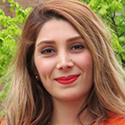 Saba Seyedi- MS,
Saba Seyedi- MS,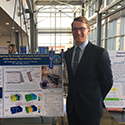 Jeff LaJeunesse- PhD candidate,
Jeff LaJeunesse- PhD candidate, 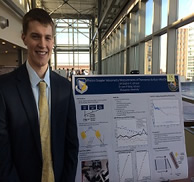 Chris Johnson- MS,
Chris Johnson- MS, 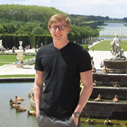
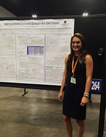 Sophie Schunk-
Sophie Schunk- 


